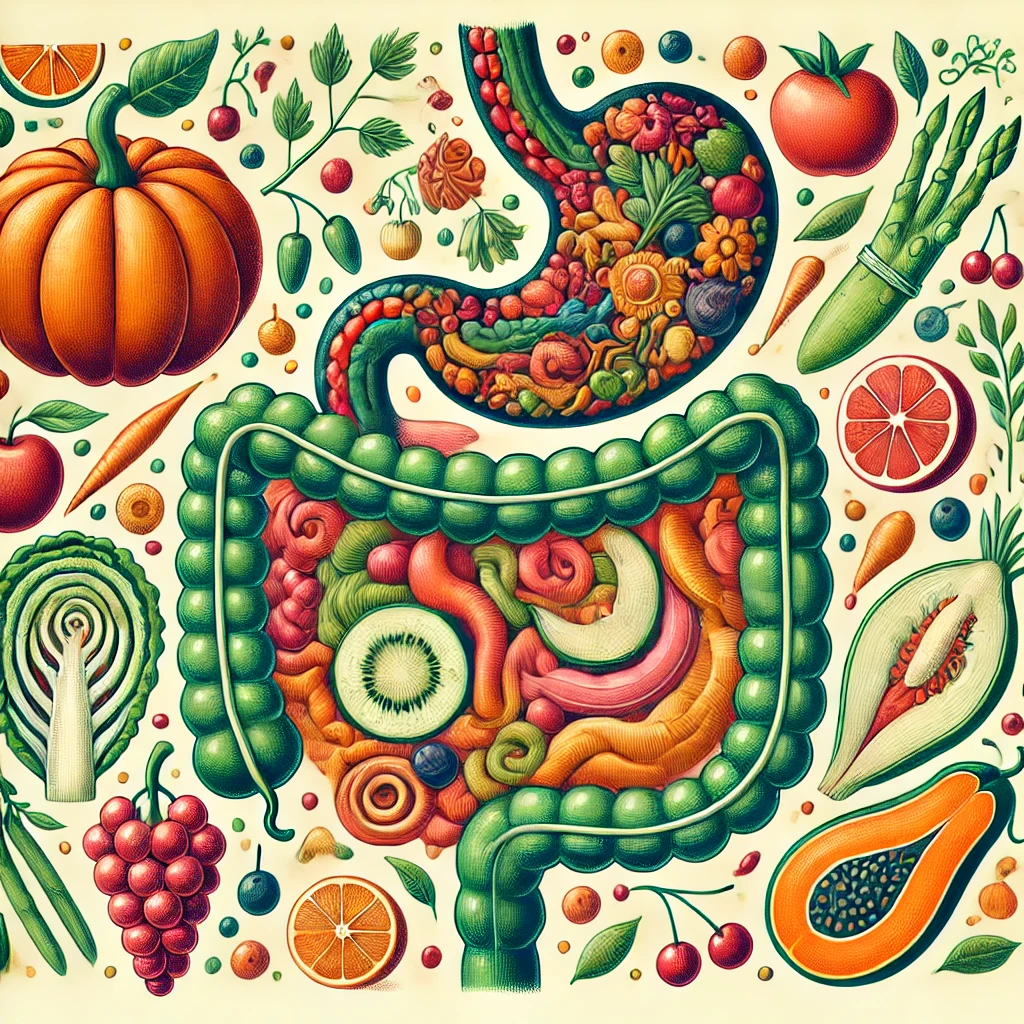
Prevent Digestive Cancers with Nutrition and Lifestyle Changes
📆 The book club meets every Monday at 12:00 PM during our regular Meatless Monday Lunch, near the stairs on the 2nd floor of CCT.
Chapter 4 focuses on the prevention of digestive cancers—specifically colorectal, pancreatic, and esophageal cancers—through diet, lifestyle, and mindful choices. Dr. Greger emphasizes that what we eat directly impacts our digestive tract and can either increase or decrease our risk of these cancers.
🥦 Colorectal Cancer Prevention
The chapter begins with the significance of colorectal cancer, one of the most commonly diagnosed but also highly treatable cancers if detected early. Dr. Greger highlights dietary strategies to prevent its occurrence.
- Turmeric’s Protective Effects: The spice turmeric contains curcumin, which may reduce the formation of precancerous lesions and polyps in the colon. Studies show that curcumin can decrease the number and size of polyps, potentially blocking the progression to cancer.
- The Power of Phytates: Found in whole grains, legumes, nuts, and seeds, phytates have been shown to inhibit cancer cell growth and may help prevent colorectal cancer. They act as antioxidants and may also boost immune function.
- Stool Size Matters: Larger, more frequent bowel movements are associated with a lower risk of colon cancer. High-fiber diets from whole plant foods promote larger stools and faster intestinal transit time, reducing exposure of the colon lining to carcinogens.
- Fiber for Regularity: A diet rich in fiber prevents constipation and reduces straining, which can decrease the risk of colorectal issues like polyps and cancer.
🫘 Phytates and Cancer Prevention
Beyond colorectal cancer, phytates play a role in preventing various cancers and promoting overall health.
- Inhibiting Cancer Growth: Phytates have been shown to suppress the growth of cancer cells in vitro, including cancers of the breast, prostate, liver, and colon, while sparing normal cells.
- Bone Health Benefits: Contrary to previous beliefs, phytates may improve bone mineral density and reduce the risk of osteoporosis, challenging the notion that they inhibit mineral absorption.
- Essential Nutrients: Phytates may be considered essential due to their role in preventing diseases and participating in important biochemical reactions.
🐔 Pancreatic Cancer Risk and Poultry
Dr. Greger explores the potential link between poultry consumption and pancreatic cancer.
- Occupational Hazards: Poultry workers have a significantly higher risk of dying from pancreatic cancer, possibly due to exposure to cancer-causing viruses in chickens.
- Consumption Concerns: Large-scale studies have found that even modest daily consumption of chicken is associated with an increased risk of pancreatic cancer, surpassing the risk from smoking.
- Curcumin as Treatment: Curcumin has shown promise in treating advanced pancreatic cancer with minimal side effects, providing a potential alternative to traditional chemotherapy.
🍗 Heme Iron and Cancer Risk
The chapter discusses how excess heme iron from animal products may contribute to cancer and other diseases.
- Iron Absorption Differences: Heme iron from meat is absorbed regardless of the body’s iron needs, unlike non-heme iron from plants, which the body regulates more effectively.
- Oxidative Stress: Excess iron can generate harmful free radicals, increasing the risk of cancer and heart disease.
- Reducing Iron Stores: Regular blood donation has been associated with a decreased risk of cancer, highlighting the potential benefits of managing iron levels through diet and lifestyle.
🍲 Esophageal Cancer and Acid Reflux
Diet plays a crucial role in preventing acid reflux and, consequently, esophageal cancer.
- Rise in Acid Reflux Disease: The prevalence of acid reflux has increased, contributing to a higher incidence of esophageal cancer.
- Dietary Triggers: High-fat meals and animal products, particularly meat and eggs, can relax the lower esophageal sphincter, allowing stomach acid to enter the esophagus.
- Fiber’s Protective Role: High-fiber diets reduce the risk of hiatal hernia and acid reflux by promoting larger, softer stools and reducing abdominal pressure.
- Berry Benefits: Consumption of berries, such as strawberries, may reverse precancerous lesions in the esophagus, offering a potential dietary intervention.
🌾 Embracing a Plant-Based Diet
Dr. Greger emphasizes the importance of a diet centered around whole plant foods for cancer prevention.
- Nutrient-Rich Foods: Whole plant foods provide essential nutrients like fiber and phytates, which protect against cancer and promote digestive health.
- Reducing Animal Products: Limiting intake of meat, especially processed and red meats, decreases exposure to harmful substances like heme iron and carcinogenic compounds.
- Holistic Benefits: A plant-based diet supports regular bowel movements, reduces acid reflux, and lowers the risk of various digestive cancers.
🧘 Key Takeaway
Our diet profoundly influences the health of our digestive system. By adopting a diet rich in whole plant foods and minimizing animal products, we can significantly reduce our risk of digestive cancers. Nutrients like fiber and phytates play protective roles, while substances in meat may increase cancer risk. It’s never too late to make dietary changes that support digestive health and overall well-being. 🌿